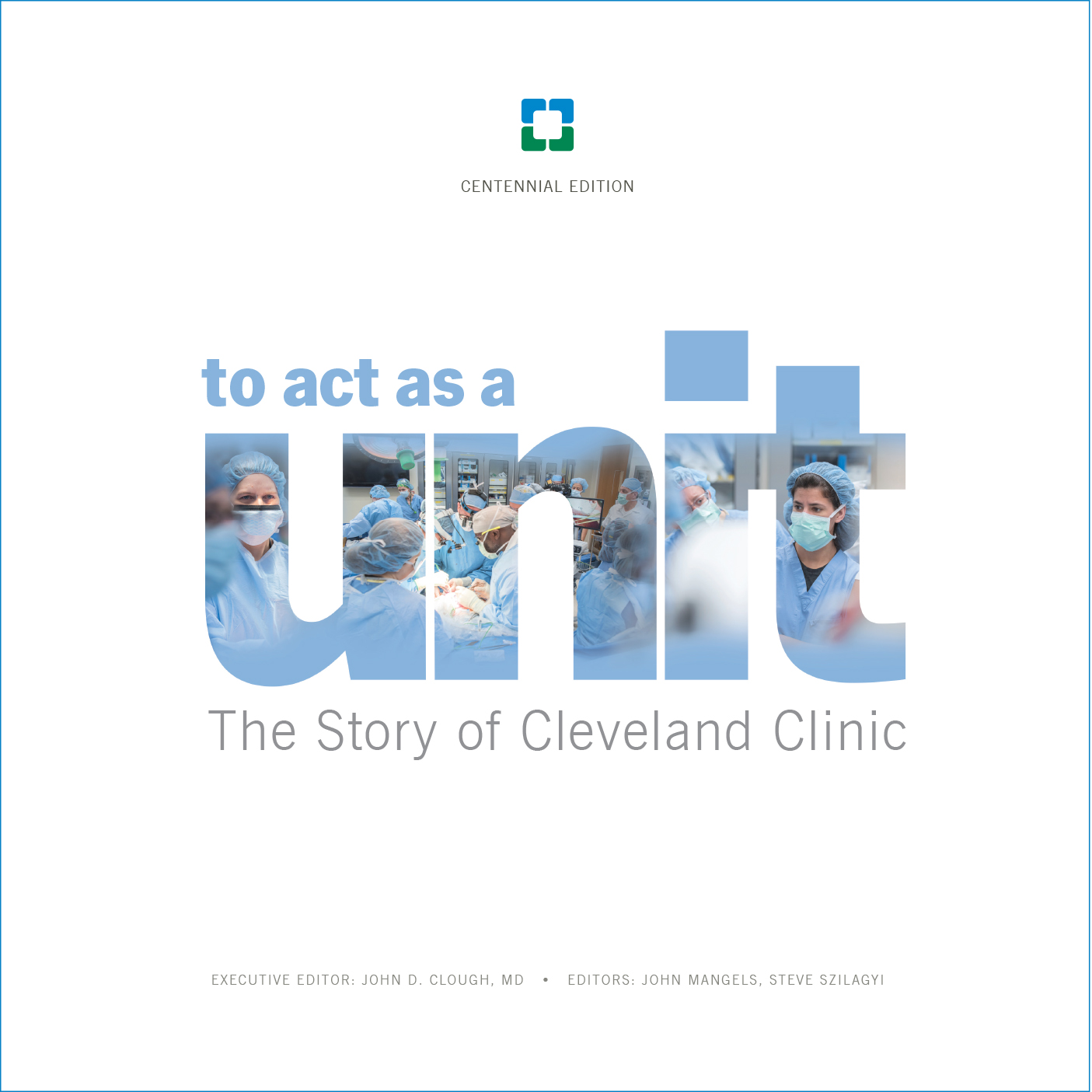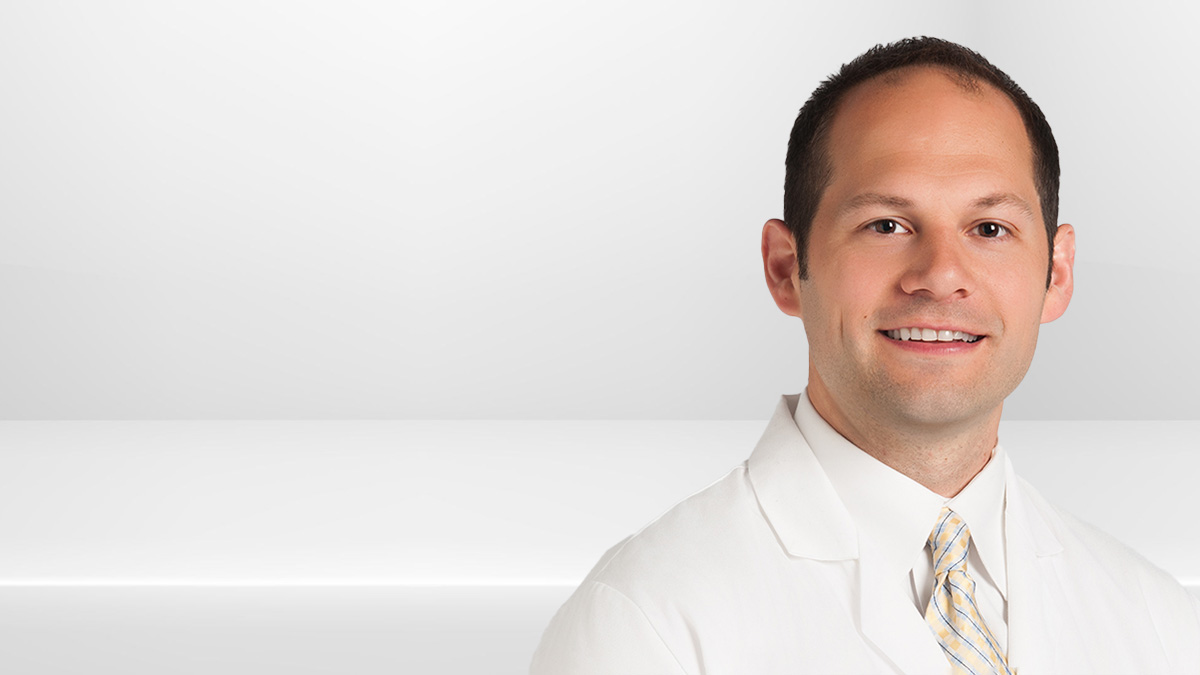Most Recent Episodes
Understanding the Thyroid with Ossama Lashin, MD, PhD
Whether it's fatigue, depression, weight gain or some other health issue, the thyroid ALWAYS seems to catch the blame. But can this small gland really cause that much mayhem? Find out in this podcast featuring endocrinologist Ossama Lashin.
Ataxia: Diagnosis & Management
Odinachi Oguh, MD, sheds light on the nuances of ataxia, particularly the identification and multidisciplinary care needed for managing this challenging condition.
Juvenile Polyposis Syndrome
Dr. Jacob Kurowski, a pediatric gastroenterologist for Cleveland Clinic Children's, joins the Butts and Guts podcast to discuss juvenile polyposis syndrome (JPS), a genetic disorder causing polyps in the digestive tract. Explore the symptoms, diagnosis and current treatment options for JPS and learn why ongoing monitoring (from childhood through adulthood) is crucial to keeping this condition under control.

Beyond Leadership
Host Dr. Brian Bolwell escorts you through a network of thought leaders, sharing world-class insight on leadership and cutting-edge hospital management approaches. They will inspire and perhaps compel you to reinvent your practices – and yourself.Developed and managed by Cleveland Clinic Global Executive Education.
Subscribe:
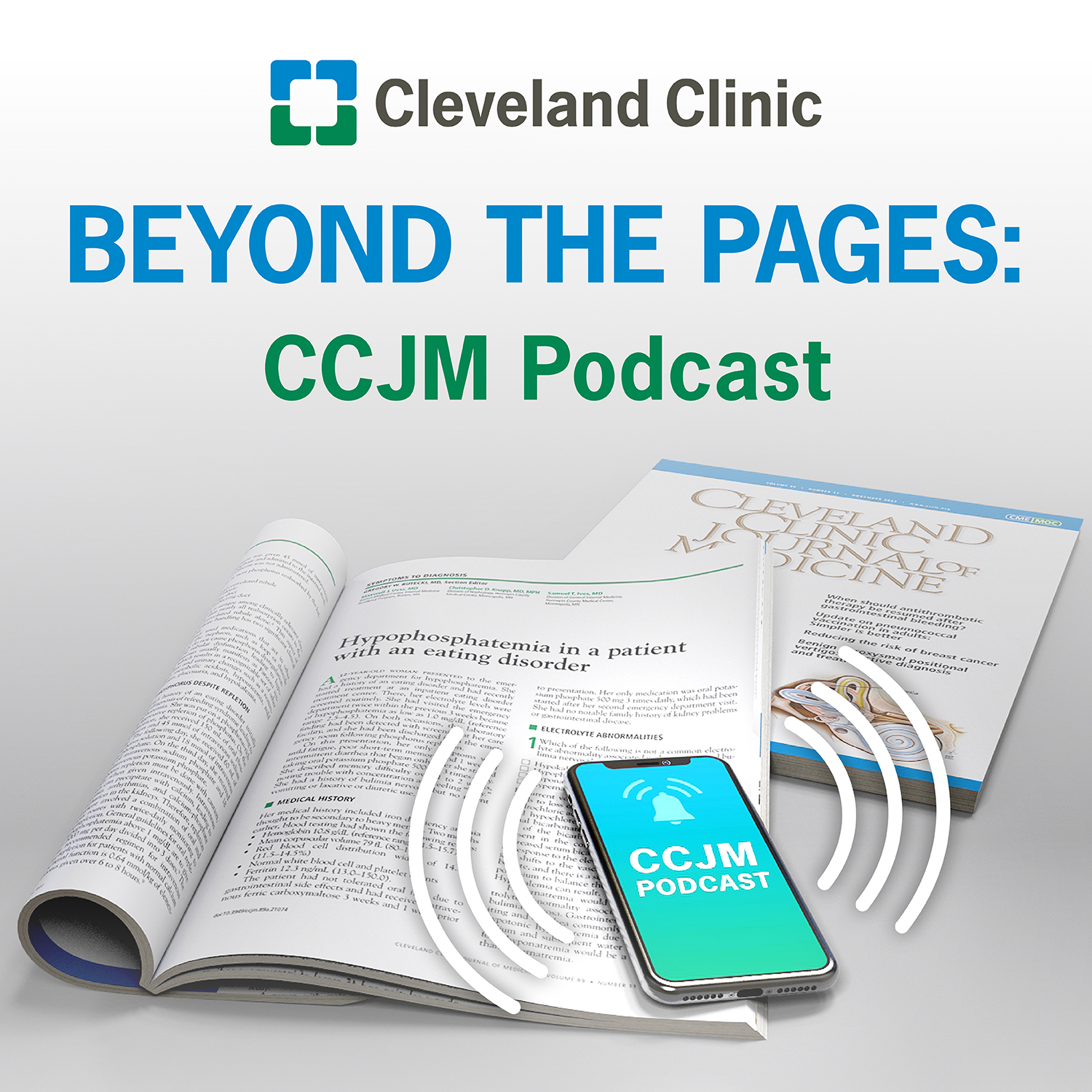
Beyond the Pages: CCJM Podcast
Beyond the Pages: CCJM Podcast takes the listener more in-depth into Cleveland Clinic Journal of Medicine articles. Through interviews with the authors and article reviews by experts, clinicians can have an even better understanding of clinical breakthroughs that are changing the practice of medicine and how to practically apply them in patient care.
Subscribe:

Butts & Guts
A Cleveland Clinic podcast exploring your digestive and surgical health from end to end. You’ll learn how to have the best digestive health possible from your gall bladder to your liver and more from our host, Colorectal Surgeon and President of the Main Campus Submarket, Scott Steele, MD.Subscribe:
Cancer Advances
A Cleveland Clinic podcast for medical professionals exploring the latest innovative research and clinical advances in the field of oncology.Subscribe:
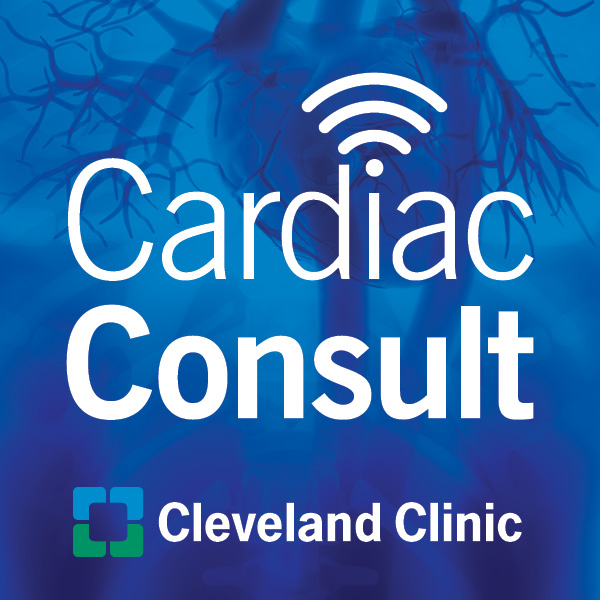
Cardiac Consult
A Cleveland Clinic podcast exploring heart, vascular and thoracic topics of interest to healthcare providers: medical and surgical treatments, diagnostic testing, medical conditions, and research, technology and practice issues.
Subscribe:

Exploring Health with Cleveland Clinic London
Tune into Exploring Health for open conversations about health, wellness, and the latest medical advancements. Hosted by Mr Kash Akhtar, Consultant Orthopaedic Surgeon, each episode dives into key health topics with expert insights from Cleveland Clinic London specialists. Whether you’re a patient seeking answers, or healthcare professional looking to expand your knowledge, Exploring Health is your trusted source for engaging and informative discussions.This podcast was made possible by the support of Cleveland Clinic Philanthropy UK, the charity partner of Cleveland Clinic London.
Subscribe:
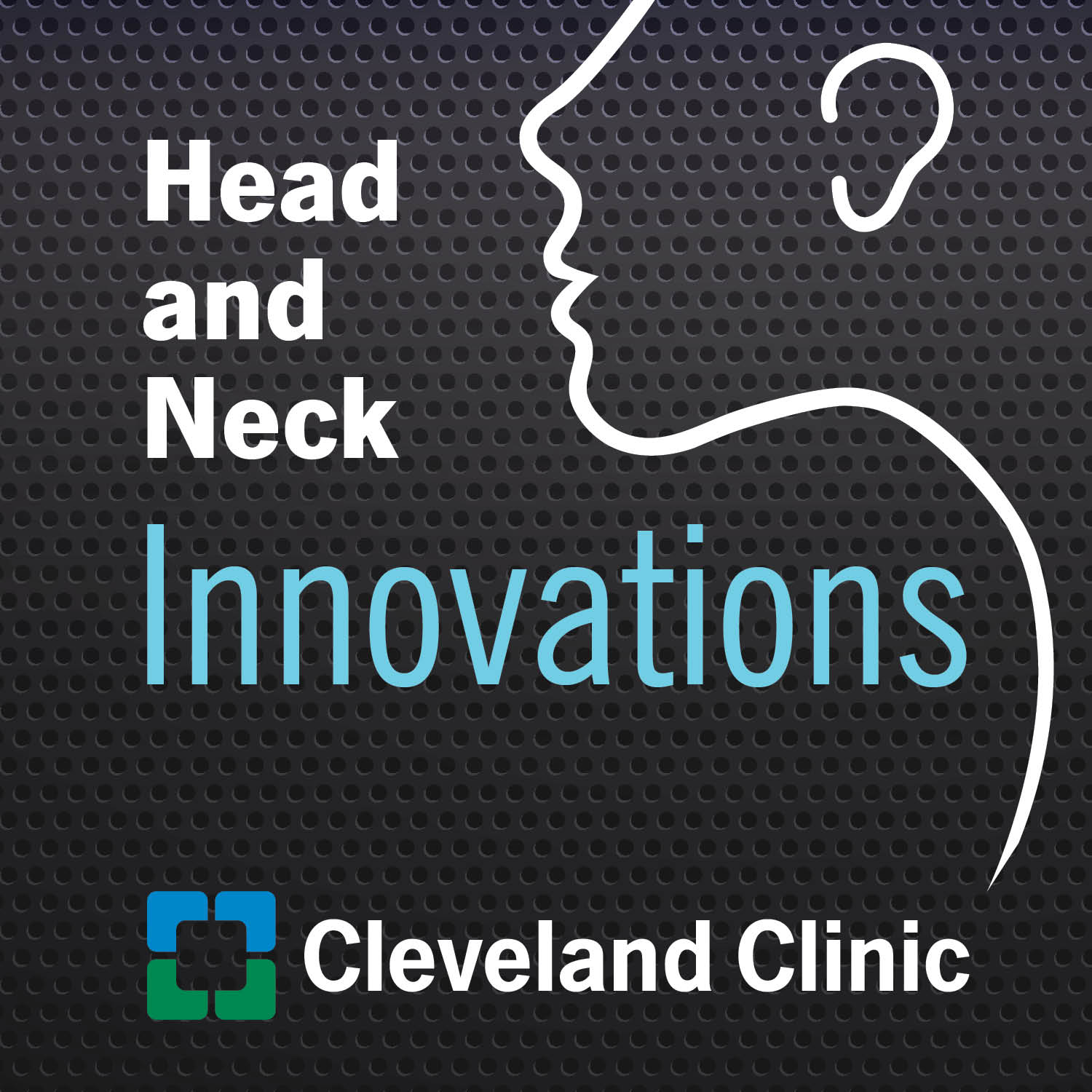
Head and Neck Innovations
Head and Neck Innovations, a Cleveland Clinic podcast for medical professionals exploring the latest innovations, discoveries, and surgical advances in Otolaryngology – Head and Neck Surgery.Subscribe:

Health Essentials
Tune in for practical health advice from Cleveland Clinic experts. What's really the healthiest diet for you? How can you safely recover after a heart attack? Can you boost your immune system?
Cleveland Clinic is a nonprofit, multispecialty academic medical center that's recognized in the U.S. and throughout the world for its expertise and care. Our experts offer trusted advice on health, wellness and nutrition for the whole family.
Our podcasts are for informational purposes only and should not be relied upon as medical advice. They are not designed to replace a physician's medical assessment and medical judgment. Always consult first with your physician about anything related to your personal health.
Subscribe:
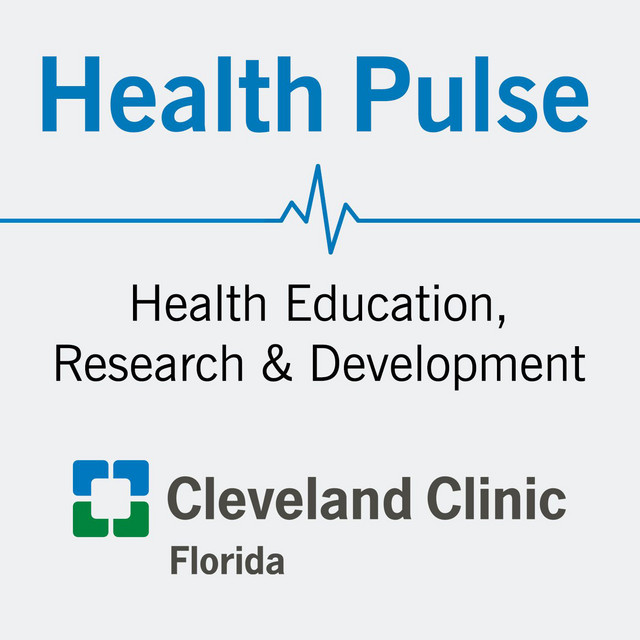
Health Pulse
A Cleveland Clinic Florida Health Education, Research and Development Podcast. Featuring Conor Delaney, MD, PhD, CEO and President of Cleveland Clinic Florida interviewing key leaders across the Florida Region on innovation, experience and growth. Key topics surround the health and wellbeing of the community and the advances in healthcare to support them.Subscribe:
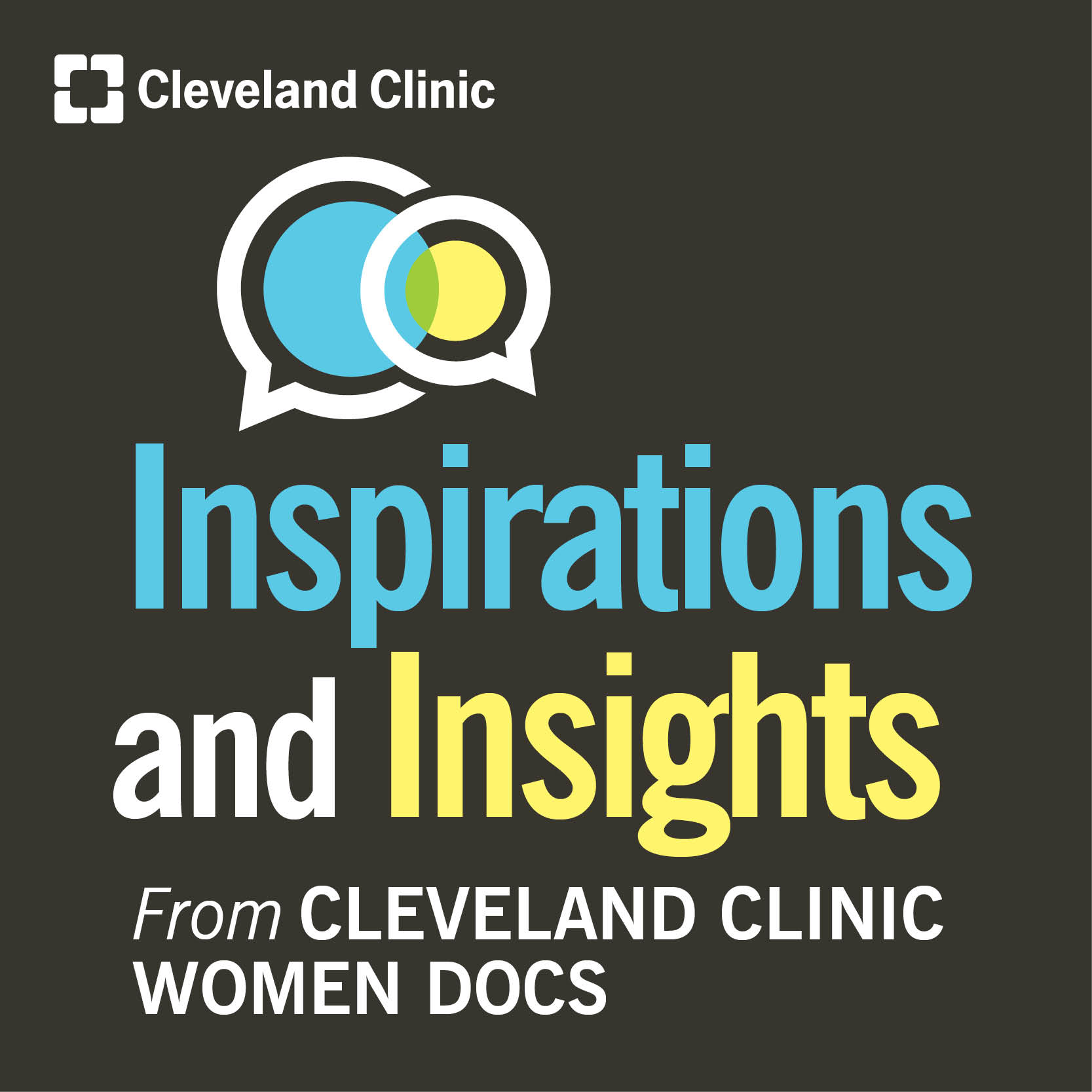
Inspirations and Insights from Cleveland Clinic Women Docs
In celebration of Cleveland Clinic’s centennial, hosts Dr. Cara King and Dr. Mary Rensel share conversations with women doctors at Cleveland Clinic, exploring the highlights and challenges of being a woman in medicine.Subscribe:

Learning to Lead
This podcast is designed for Cleveland Clinic caregivers looking to develop their leadership skills both personally and professionally. Listen in with leadership experts on the topics that matter most, and what makes our culture what it is at Cleveland Clinic. We'll hear from aspiring leaders to seasoned experts on hard lessons learned, best practices, and how to grow and develop. No matter where you are in your journey, this podcast is for you.Subscribe:
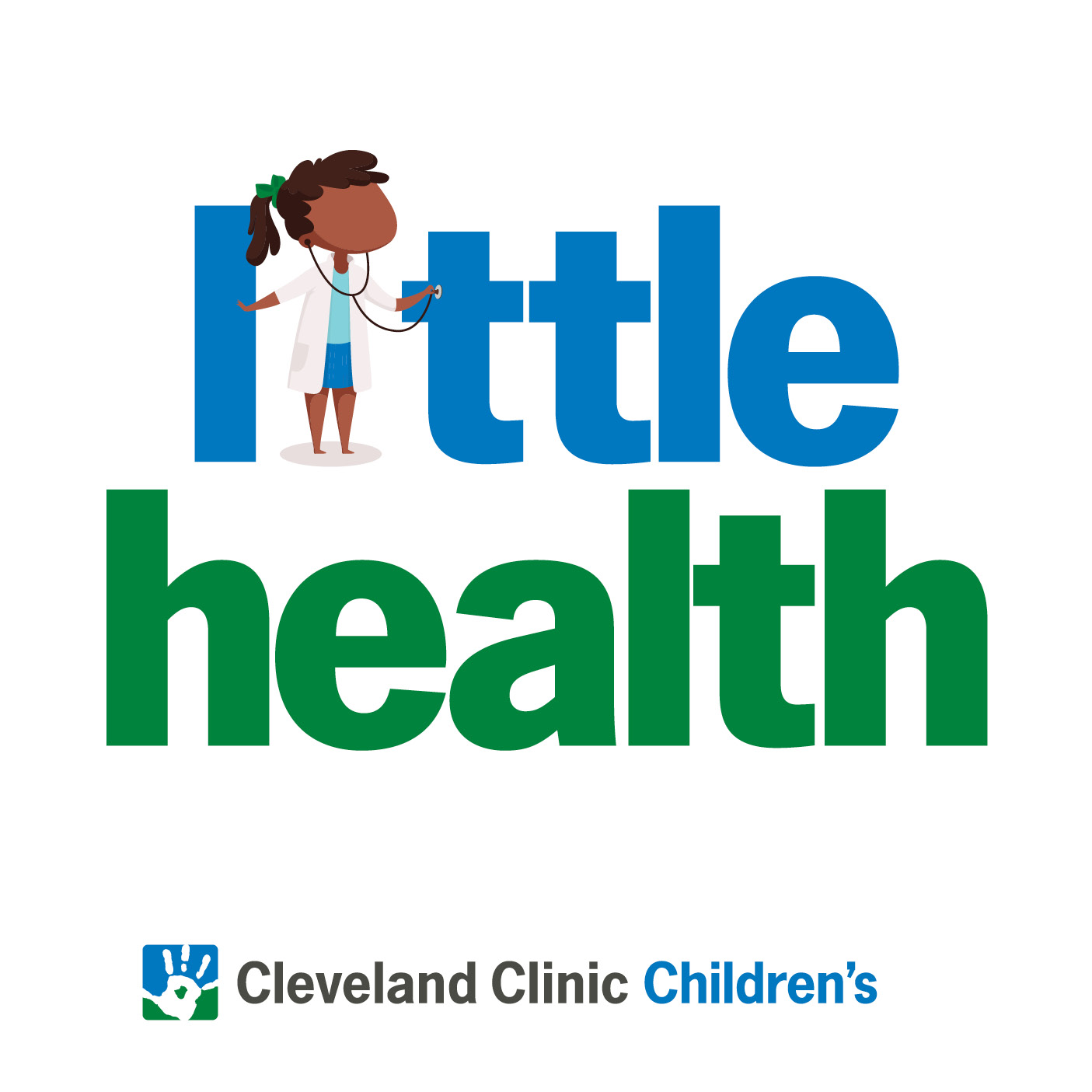
Little Health - A Cleveland Clinic Children’s Podcast
Join us as we navigate the complexities of child health, one chapter at a time. Each season, we dive deep into a specific area of pediatric care, featuring a new host with specialized expertise. We address your concerns, answer your questions, and provide valuable information to help you raise healthy, happy children.Subscribe:

Love Your Heart
A Cleveland Clinic podcast to help you learn more about heart and vascular disease and conditions affecting your chest. We explore prevention, diagnostic tests, medical and surgical treatments, new innovations and more.
Subscribe:

MedEd Thread
MedEd Thread explores the latest innovations in medical education and amplifies the tremendous work of our educators across the Cleveland Clinic enterprise.Subscribe:

Neuro Pathways
A Cleveland Clinic podcast for medical professionals exploring the latest research discoveries and clinical advances in the fields of neurology, neurosurgery, neurorehab and psychiatry. Learn how the landscape for treating conditions of the brain, spine and nervous system is changing from experts in Cleveland Clinic's Neurological Institute.
These activities have been approved for AMA PRA Category 1 Credits™ and ANCC contact hours.
Subscribe:

Nurse Essentials
Nurse Essentials is a podcast about all things nursing - from tips for making your next shift easier to advice on how to handle the big challenges you face. Whether you're just starting your practice or have years of experience, we've got you covered.
Subscribe:
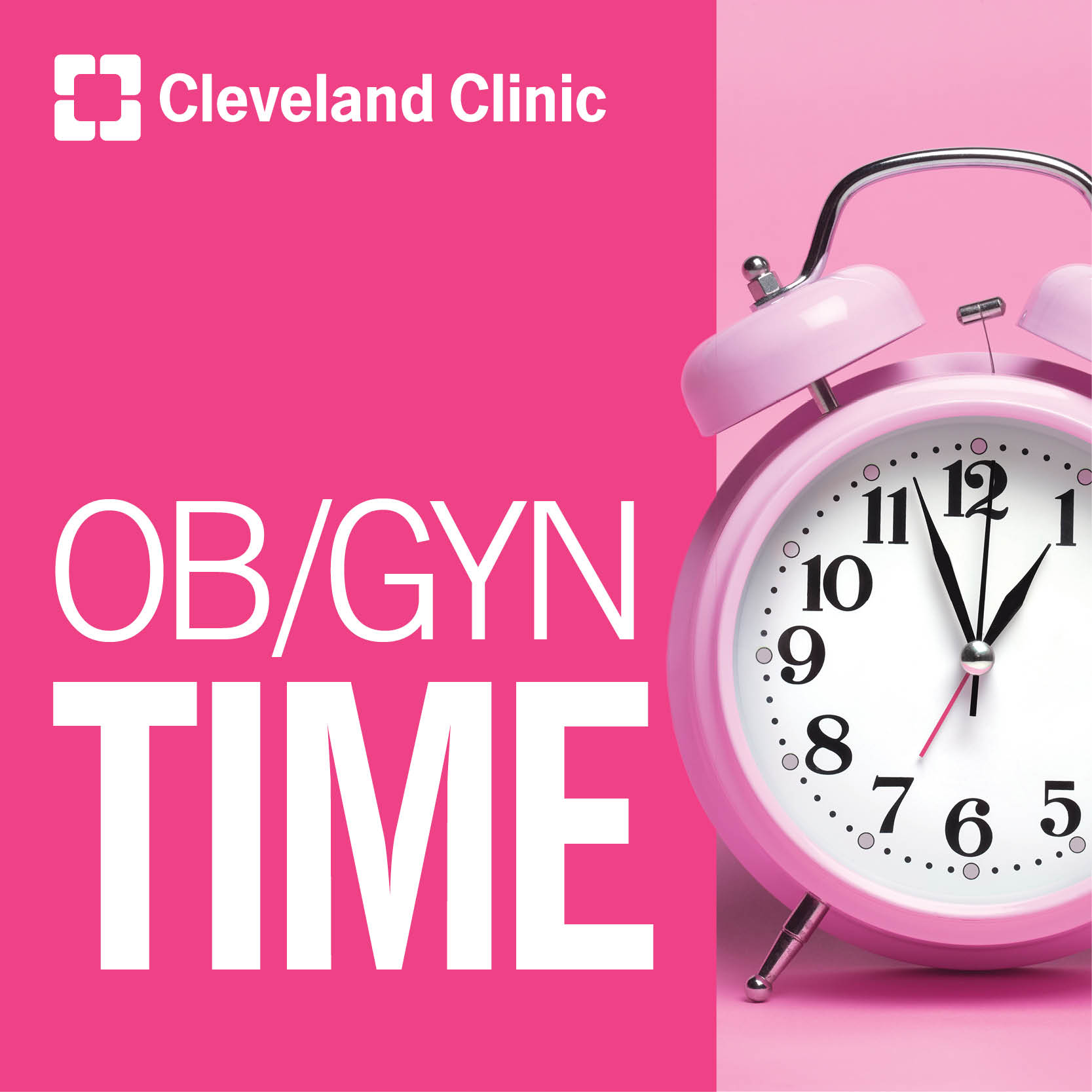
Ob/Gyn Time
A Cleveland Clinic podcast covering all things women's health from our host, Erica Newlin, MD. You'll hear from our experts on topics such as birth control, pregnancy, fertility, menopause and everything in between. Listen in to better understand your health and be empowered to live your best.
Subscribe:

Respiratory Exchange
A Cleveland Clinic podcast exploring timely and timeless clinical and leadership topics in the disciplines of pulmonary medicine, critical care medicine, infectious disease and related areas.Hosted by Raed Dweik, MD, MBA, Chief of the Integrated Hospital Care Institute.
Subscribe:
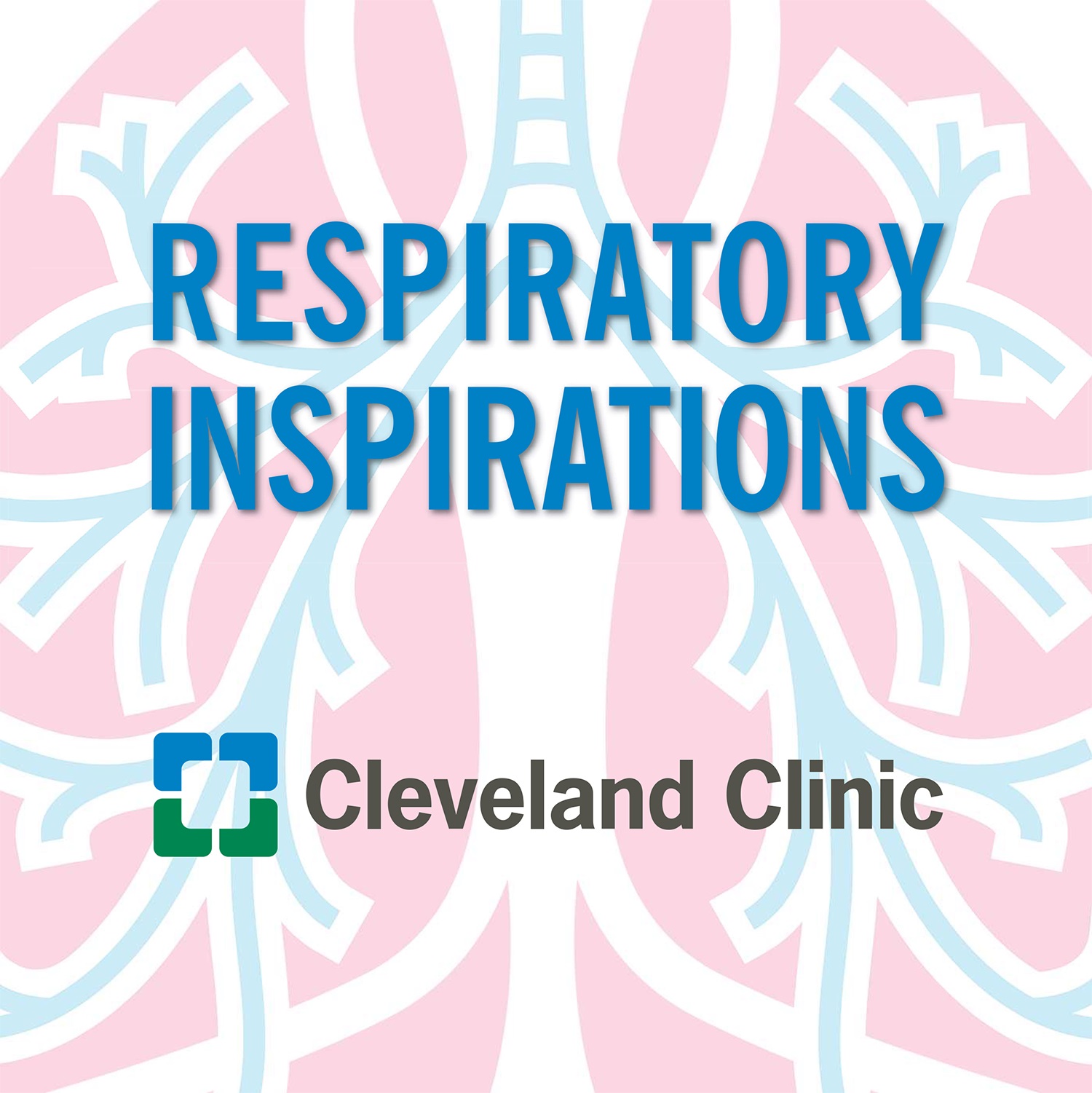
Respiratory Inspirations
A Cleveland Clinic podcast covering lung disease, allergy, sleep, critical illness and infectious disease. We’ll help you learn more about conditions affecting your respiratory health as we discuss related diseases, causes, treatments, innovations and what the future may bring. So take a deep breath and join us.Subscribe:

Studies in Empathy
Join Cleveland Clinic Patient Experience leaders and a group of guests with a wide range of experiences as we delve into the human(e) experience in healthcare. Thought leaders share insight, anecdotes, and perspectives on empathy as a functional concept for Patient Experience leadership, and also just about everything else we do in healthcare-quality, safety, burnout, and engagement leadership.Subscribe:

The Comeback
A medical journey can be a transformational point in someone’s life. Tune in as Cleveland Clinic patients, together with their physicians, share experiences of perseverance and determination. In their own words, hear how these health heroes have made the ultimate comeback.
Subscribe:
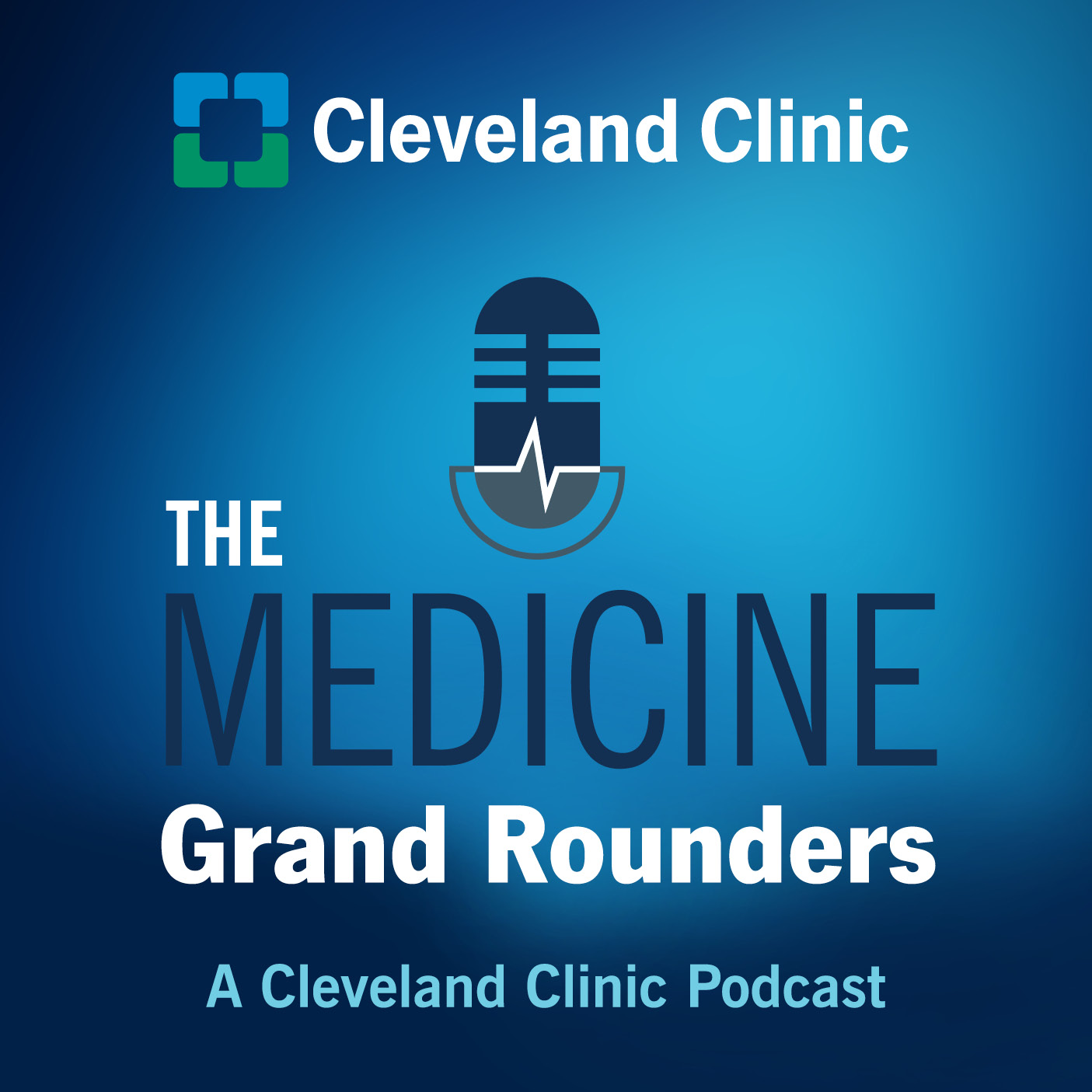
The Medicine Grand Rounders
A Cleveland Clinic podcast for medical professionals exploring important and high impact clinical questions related to the practice of general medicine. You'll hear from world class clinical experts in a variety of specialties of Internal Medicine.
Meet the team: Dr. Andrei Brateanu, Dr. Nitu Kataria, Dr. Arjun Chatterjee, Dr. Zoha Majeed, Dr. Sharon Lee, Dr. Ridhima Kaul
Former members: Dr. Richard Wardrop, Dr. Tarek Souaid
Music credits: Dr. Frank Gomez
Subscribe:
